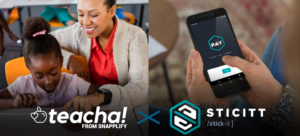How many students actually enjoy their education? Children learn in different ways at different paces, and have different interests, but the education system rolls on full steam ahead, like a factory production line.
Peter Hutton hated his own school experience, where he felt that school was “done” to him. As principal of Templestowe College, he developed an educational model that allows students to individualise their education and share control in the running of the school.
The result is a wonderful school environment where students are part of a community, are allowed to innovate, and are enthusiastic about their education. How many other schools struggle with attendance alone?
So, students are put in control of their own learning, which has proven to nurture a love for learning in fields that students are truly passionate about. What happens when we allow children to lead?
Watch this 15 minute video to see ways in which this education model benefits students: https://www.youtube.com/watch?v=nMxqEkg3wQ0
How do students control their own learning?
“Yes” is the default answer
If a staff, parent or student has a suggestion, the answer is “yes”, unless it costs too much, takes too much time, or negatively impacts someone else. Josh, then a grade 7 student, is passionate about physics, and asked to sit in the back of a grade 12 physics class. The answer was “yes”, if he didn’t disturb the other students.
It turned out that Josh was more advanced than his classmates. The following year he was enrolled in grade 11, but his schedule was more aligned with that of grade 9, having done grade 12 physics in grade 7. It sounds confusing, but makes perfect sense for Josh and his learning capabilities.
Students design their own curriculum
Once students have established numeracy and literacy skills, they choose their own subjects. A 5-year individualised learning plan is designed by each student, with help of parents and staff. Subjects include the usual, as well as Working with Animals, Game Design, Coding, Law, and an actual class called Geek Studies.
If the student wants to study something the school doesn’t offer (yet), they do a personalised learning project where they learn the subject by doing their own research.
No homework
Studies have shown time and time again that students would benefit more from extra sleep than more schoolwork. Juniors don’t do homework at all, while seniors do what is called “home learning”. They must complete 10 hours per week of home learning, which can include research, learning a new language, learning an instrument, Scouts, or preparing a meal for the family.



